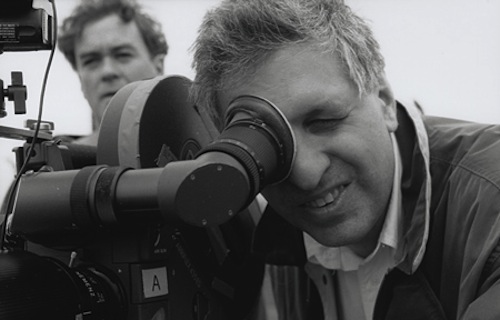Donald Rumsfeld is closely associated with two memorable quotations. The first came during his evasion of a question about how (subtext: if) he knew that Iraq had weapons of mass destruction, when he said “absence of evidence is not evidence of absence, or vice versa.” It was an infuriating statement, partly because the vice-versa version is dumb but mostly because Carl Sagan used to say it about the existence of extraterrestrial life somewhere in the vast universe, not about a specific place where we had sent UN weapons inspectors. The second classic Rumsfeld quote is the infamous “known knowns” disquisition, in which Rumsfeld responds to a question partly by attacking the very concept of knowledge. It provided the title for Errol Morris’s new documentary The Unknown Known, which he will be very happy to discuss with your news outlet.
Tag Archives: errol morris
The Dunning-Kruger Effect is awesome, you guys
Judge Holden, the rad Satan figure in Cormac McCarthy’s rad hallucinatory western Blood Meridian, observes that “everything that exists without my knowledge exists without my permission.” A palpable satisfaction comes from naming things, particularly when those things are familiar but somehow yet nameless. Hence the beauty of schadenfreude, or the French expression for thinking of a witty comeback after the moment has passed, esprit d’escalier—”the spirit of the stairs.” Such terms are pleasing because they identify things we recognize but which previously blended into the larger field; they quantify experiences out of the miasma of life. I was therefore extremely pleased, yesterday, when I ran across the Dunning-Kruger Effect: the tendency of underskilled individuals to rate their abilities much higher than average, for precisely the same reasons that they are underskilled.
Errol Morris on the unknown unknowns
 Documentary filmmaker and all-around dope human being Errol Morris has a semi-regular column for the New York Times, in which he discusses “the influences and use of photography.” One of the uses of photography is to provide subject matter for essays I don’t read, for possibly the same reason that I am not interested in sculptures about songs. Yesterday, though, he got me. Morris describes a man who came under the impression that rubbing lemon juice on your face makes it invisible to cameras. Armed with this knowledge, he robbed two banks in Pittsburgh, his eyes and skin burning, only to be identified from security footage and apprehended. The man, Morris opines, was the victim of a kind of anosognosia—in this case the failure, caused by stupidity, to recognize one’s own stupidity.
Documentary filmmaker and all-around dope human being Errol Morris has a semi-regular column for the New York Times, in which he discusses “the influences and use of photography.” One of the uses of photography is to provide subject matter for essays I don’t read, for possibly the same reason that I am not interested in sculptures about songs. Yesterday, though, he got me. Morris describes a man who came under the impression that rubbing lemon juice on your face makes it invisible to cameras. Armed with this knowledge, he robbed two banks in Pittsburgh, his eyes and skin burning, only to be identified from security footage and apprehended. The man, Morris opines, was the victim of a kind of anosognosia—in this case the failure, caused by stupidity, to recognize one’s own stupidity.


